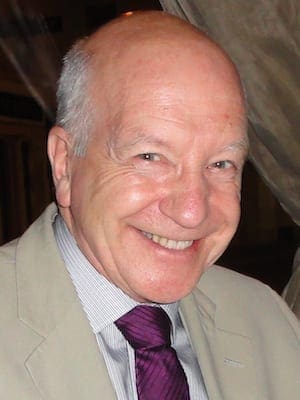It takes a lot of love, faith and courage to decide, “I shall not hate,” and to resist calls for revenge.
In his book, “I Shall Not Hate,” Izzeldin Abuelaish, a Palestinian doctor, reflects on his experiences following the Israeli Defense Force’s incursion into Gaza in 2009.
Abuelaish’s home was targeted during these strikes, and a tank shell was fired through a bedroom window. His three daughters and a niece died as a result.
Despite his tragic loss, Abuelaish has chosen to pursue an alternative path to hatred.
“Hatred is an illness. It prevents healing and peace,” he writes. “We use hatred and blame to avoid the reality that eventually we need to come together.”
Elie Wiesel, Nobel Peace Prize laureate and Holocaust survivor, describes the book as “a necessary lesson against hatred and revenge.”
Abuelaish is the founder of Daughters for Life Foundation, which offers educational support for Middle Eastern women.
The book tells the story of one Palestinian family’s grief and the determination of a doctor to overcome hatred with love, violence with peace, and fear with the persuasion of truth told and lived.
As I’ve pondered, and wondered, at this remarkable man’s response to the tragic killing of his family:
- I am tired of the rhetoric of blame and justification from the Israeli Defense Force and those who give the orders for military incursions into Gaza.
- I refuse to ignore the prolonged siege and dehumanizing humiliation of a people on the grounds of security as disguise for land appropriation.
- I acknowledge the threat posed by Hamas, but also acknowledge the ludicrous imbalance of power and the disproportionate measures, military, legislatively and economically, taken against civilian people in the interests of this unchallenged idol of national security.
- I am appalled at the policies of a government of a country that came into being as a nation state to provide a home for homeless persecuted people, and now in turn practices institutional persecution of the Palestinian people.
And yet, I have much to learn from Abbuelish who, near the end of his book, writes a list of the lessons he has learned in the tragedy of his children and, in converting that anguish into creative energy, to build a better future.
Here are five of those lessons that have deep echoes of the words of Jesus whose entire life was built on self-giving love and who also embodied that so humane defiance of unspeakable grievance, “I shall not hate”:
1. Hate is blindness and leads to irrational thinking and behavior. It is a chronic, severe and destructive sickness.
2. Anger is not the same as hate. Anger can be productive. Feel the anger, acknowledge it, but let it be accompanied by change. Let it propel you toward necessary action for others.
3. When your core values align with your heart, they become non-negotiable. If this is your guide, you can make decisions with the utmost integrity.
4. Peace is humanity; peace is respect; peace is open dialogue. Good ideas become great ones when shared with others.
5. Trust children’s opinions. They are most likely to speak the truth and far less likely to have a personal agenda.
These are wise and important lessons learned through tragedy. It is my prayer that the God of Abraham, Isaac and Jacob, the Lord who is one God, will touch with mercy those hearts that hate, and hearts that refuse to hate, and out of that history of anguish and broken dreams, build a new future.
 James Gordon is part-time minister of Montrose Baptist Church in Angus, Scotland, and the former principal of the Scottish Baptist College. He is on the advisory board of the Centre for Ministry Studies, University of Aberdeen, and is honorary lecturer in the School of Divinity, History and Philosophy. A version of this article first appeared on his blog, Living Wittily, and is used with permission.
James Gordon is part-time minister of Montrose Baptist Church in Angus, Scotland, and the former principal of the Scottish Baptist College. He is on the advisory board of the Centre for Ministry Studies, University of Aberdeen, and is honorary lecturer in the School of Divinity, History and Philosophy. A version of this article first appeared on his blog, Living Wittily, and is used with permission.
Part-time minister of Montrose Baptist Church in Angus, Scotland, and the former principal of the Scottish Baptist College. He is on the advisory board of the Centre for Ministry Studies, University of Aberdeen, and is honorary lecturer in the School of Divinity, History and Philosophy.

